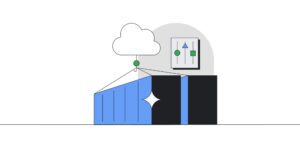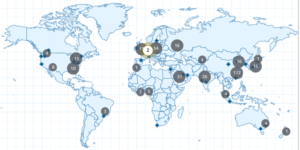[ad_1]
In constructing and operating a enterprise, the security and safety of your and your prospects’ delicate info and knowledge is a high precedence, particularly when storing monetary info and processing funds are involved. The Cost Card Trade Information Safety Normal (PCI DSS)1 defines a set of laws put forth by the most important bank card corporations to assist scale back expensive shopper and financial institution knowledge breaches.
On this context, PCI compliance refers to assembly the PCI DSS’ necessities for organizations and sellers to assist safely and securely settle for, retailer, course of, and transmit cardholder knowledge throughout bank card transactions, to forestall fraud and theft.
In the direction of confidential computing
In June 2021, the Financial Authority of Singapore (MAS)2 issued an advisory round on addressing the expertise and cyber safety dangers related to public cloud adoption. The paper describes a set of danger administration rules and greatest observe requirements to information monetary establishments in implementing acceptable knowledge safety measures to assist shield the confidentiality and integrity of delicate knowledge within the public cloud, taking into account data-at-rest, data-in-motion, and data-in-use the place relevantthree. Particularly, at part 21, reported under, for knowledge that’s getting used or processed within the public cloud, monetary institutes (FIs) could implement confidential computing options if obtainable from the cloud service supplier. Confidential computing options shield knowledge by isolating delicate knowledge in a protected, hardware-based computing enclave.
Information safety and cryptographic key administration
FIs ought to implement acceptable knowledge safety measures to guard the confidentiality and integrity of delicate knowledge within the public cloud, taking into account data-at-rest, data-in-motion and data-in-use the place relevant.
- For data-at-rest, that’s, knowledge in cloud storage, FIs could implement extra measures e.g. knowledge object encryption, file encryption or tokenization along with the encryption supplied on the platform degree.
- For data-in-motion, that’s, knowledge that traverses to and from, and inside the public cloud, FIs could implement session encryption or knowledge object encryption along with the encryption supplied on the platform degree.
- For data-in-use, that’s, knowledge that’s getting used or processed within the public cloud, FIs could implement confidential computing options if obtainable from the CSPs. Confidential computing options shield knowledge by isolating delicate knowledge in a protected, hardware-based computing enclave throughout processing.
Confidential digital machines
On these premises, FIs can leverage Azure confidential computing for constructing an end-to-end knowledge and code safety answer on the most recent expertise for hardware-based reminiscence encryption. The answer introduced on this article for processing bank card funds makes use of confidential digital machines (CVMs) operating on AMD Safe Encrypted Virtualization (SEV)—Safe Nested Paging (SNP) expertise.
AMD launched SEV to isolate digital machines from the hypervisor. Hypervisors are sometimes thought of trusted elements within the virtualization safety mannequin, and many purchasers have requested a VM belief mannequin which reduces the publicity to vulnerabilities within the infrastructure. With SEV, particular person VMs are assigned a singular encryption key wired within the CPU, used for robotically encrypting the reminiscence allotted by the hypervisor to run a VM.
The most recent era of SEV expertise consists of SNP functionality. SNP provides new hardware-based safety by offering robust reminiscence integrity safety from potential assaults to the hypervisor, together with knowledge replay and reminiscence re-mapping.
Azure confidential computing presents confidential VMs based mostly on AMD processors with SEV-SNP expertise. Confidential VMs are for tenants with excessive safety and confidentiality necessities. You should utilize confidential VMs for migrations with out making adjustments to your code, with the platform assist shield your VM’s state from being learn or modified. Advantages of confidential VMs embody:
- Sturdy hardware-based isolation between digital machines, hypervisor, and host administration code.
- Attestation insurance policies to make sure the host’s compliance earlier than deployment.
- Cloud-based full-disk encryption earlier than the primary boot.
- VM encryption keys that the platform or the client (optionally) owns and manages.
- Safe key launch with cryptographic binding between the platform’s profitable attestation and the VM’s encryption keys.
- Devoted digital Trusted Platform Module (TPM) occasion for attestation and safety of keys and secrets and techniques within the digital machine.
The provisioning of a confidential VM in Azure is so simple as some other common digital machine, utilizing your most well-liked software, both manually by way of the Azure Portal, or by scripting with Azure command-line interface (CLI). Determine 2 exhibits the method of making a digital machine within the Azure Portal, with particular consideration to the “Safety sort” attribute. For provisioning a confidential VM based mostly on AMD SEV-SNP expertise, you need to choose that particular entry within the dropdown record. On the time of writing (March 2022), confidential VMs are in preview in Azure, and thus restricted in availability throughout areas. As this service enters basic availability, extra areas might be obtainable for deployment.

Determine 1: Confidential Digital Machine in Azure Portal.
Bank card tokenization
Within the situation above in Determine 2, the method of tokenization is a random oracle, which is a course of that, given an enter, generates a non-predictable output. The random output at all times varies even when the identical enter is supplied. For instance, when a buyer makes a second cost utilizing the identical bank card utilized in a earlier transaction, the token generated might be completely different. Lastly, when offering that random output again to the service, the tokenization interface fetches the unique enter.
Not by coincidence that I used the time period “interface” for describing this tokenization service. Certainly, the technical implementation of such random generator is a Internet API operating within the .NET 6 runtime. Determine three describes the reference structure for the answer.

Determine 2: Bank card tokenization structure reference.
- A cost transaction is initiated by the client and cost knowledge is transferred to the .NET Internet API. This API is operating on a confidential VM.
- The random token is generated by the API based mostly on the enter knowledge. Tokenization consists of additionally encryption of such knowledge, with a symmetric cryptographic algorithm (AES particularly).
- The encryption secret is saved in Azure Key Vault operating on a managed Hardware Safe Module (HSM). This can be a vital element of the confidential answer, because the encryption secret is preserved contained in the HSM. The HSM helps defending keys from the cloud supplier or some other rogue administrator. Solely the Internet API app is allowed to entry the key key.
The next code snippets present the implementation of the important thing retrieval from AKV contained in the Get technique of the Internet API.
[HttpGet(Name = "GetToken")]
public async Process<TokenTuple> Get(CreditCard card)
{
// Retrieve the AES encryption key from AKV
string akvName = Setting.GetEnvironmentVariable("KEY_VAULT_NAME");
var akvUri = $"https://akvName.vault.azure.internet";
var akvClient = new SecretClient(new Uri(akvUri), new Azure.Identification.DefaultAzureCredential());
var secret = await akvClient.GetSecretAsync("AesEncryptionKey");
EncryptionKey key = JsonSerializer.Deserialize<EncryptionKey>(secret.Worth.Worth);
Azure Key Vault Managed HSM is a completely managed, extremely obtainable, single-tenant, standards-compliant cloud service that allows you to safeguard cryptographic keys in your cloud functions, utilizing FIPS 140-2 Stage three validated HSMs.
The service is extremely obtainable and zone resilient (the place availability zones are supported): Every HSM cluster consists of a number of HSM partitions that span throughout at the very least two availability zones. If the hardware fails, member partitions in your HSM cluster might be robotically migrated to wholesome nodes.
Every Managed HSM occasion is devoted to a single buyer and consists of a cluster of a number of HSM partitions. Every HSM cluster makes use of a separate customer-specific safety area that cryptographically isolates every buyer’s HSM cluster.
The HSM is FIPS 140-2 Stage three validated, which implies that it meets compliance necessities with Federal Info Safety Normal 140-2 Stage three.
AKV Managed Hardware Safety Module (MHSM) additionally assists with knowledge residency because it would not retailer and course of buyer knowledge outdoors the area the client deploys the HSM occasion in.
Lastly, with AKV MHSM, prospects can generate HSM-protected keys in their very own on-premises HSM and import them securely into Azure.
- The obtained encryption secret is then used to encrypt the cost knowledge with a symmetric cipher. The encrypted worth is related to a newly generated token and added as a message to the queue. Within the code snippet under, the pair token and encrypted knowledge is saved in a tuple object after which enqueued.
// Encrypt the bank card info
string json = JsonSerializer.Serialize(card);
string encrypted = SymmetricCipher.EncryptToString(json, key);
// Generate token
Token token = Token.CreateNew();
// Add the token tuple to the queue
TokenTuple tuple = new (token, encrypted);
QueueManager.Occasion.Enqueue(tuple); - The generated token is added to an in-memory queue. There isn’t a persistence of information within the answer. The token expires after a configurable period of time, sometimes just a few seconds, that permits the cost gateway to course of the cost info from the queue. The mixture of operating this answer on a confidential infrastructure, in addition to the volatility of information within the queue, helps prospects make their system PCI compliant: no delicate cost knowledge is saved and processed in clear textual content.
- The queue mechanism will be carried out with any extremely dependable queue engine, similar to RabbitMQ. By operating in a confidential VM, confidentiality of information within the queue is retained additionally throughout in-memory processing using a third-party software similar to RabbitMQ or related with no code adjustments.
- The cost gateway implements the Publish-Subscribe sample (Pub-Sub) for retrieving messages from the queue, utilizing a webhook for registering the endpoint to invoke and de-queue a message.
[HttpGet(Name = "ResolveToken")]
public async Process Submit(string subscriberUri)
Get began
To get began with Azure confidential computing and implement an identical answer, I like to recommend taking a look at our official Azure confidential computing documentation.
Extra particularly, you could wish to begin by making a confidential VM as your check atmosphere for publishing your code. You possibly can observe the directions described on this article to configure a CVM manually within the Azure Portal, or you could wish to leverage an ARM template for automation.
All digital machines in Azure are protected with insurance policies and entry constraints. Confidential VMs add safety in depth on the hardware root. That’s, any knowledge and code operating in a confidential VM are remoted from the hypervisor and thus protected against the cloud service supplier. As any IaaS service, you might be nonetheless liable for provisioning and upkeep, together with OS patching and runtime set up. And as some other VM, you will have the liberty to put in and run any software program you need that’s suitable with the put in working system. This, mainly, allows you to “carry and shift” any present software and code to Azure confidential computing, and get fast advantages of the in-memory knowledge safety that Azure confidential computing delivers.
References
1The Cost Card Trade Information Safety Normal (PCI DSS).
2The Financial Authority of Singapore (MAS).
threeAdvisory on Addressing the Expertise and Cyber Safety Dangers Related to Public Cloud Adoption, MAS, June 1, 2021.
[ad_2]
Source link





